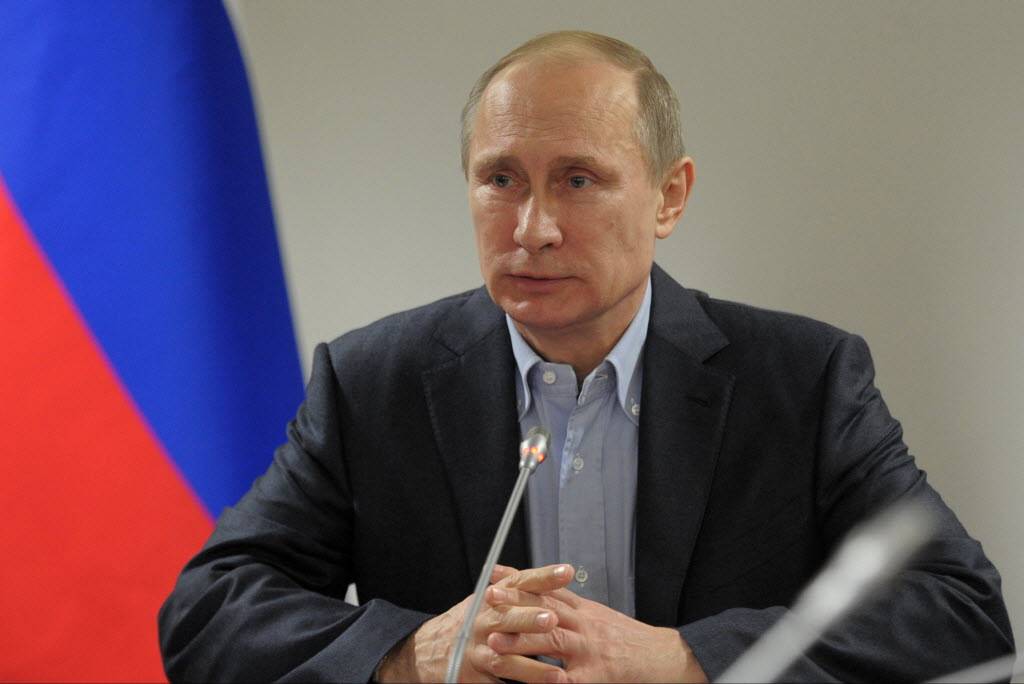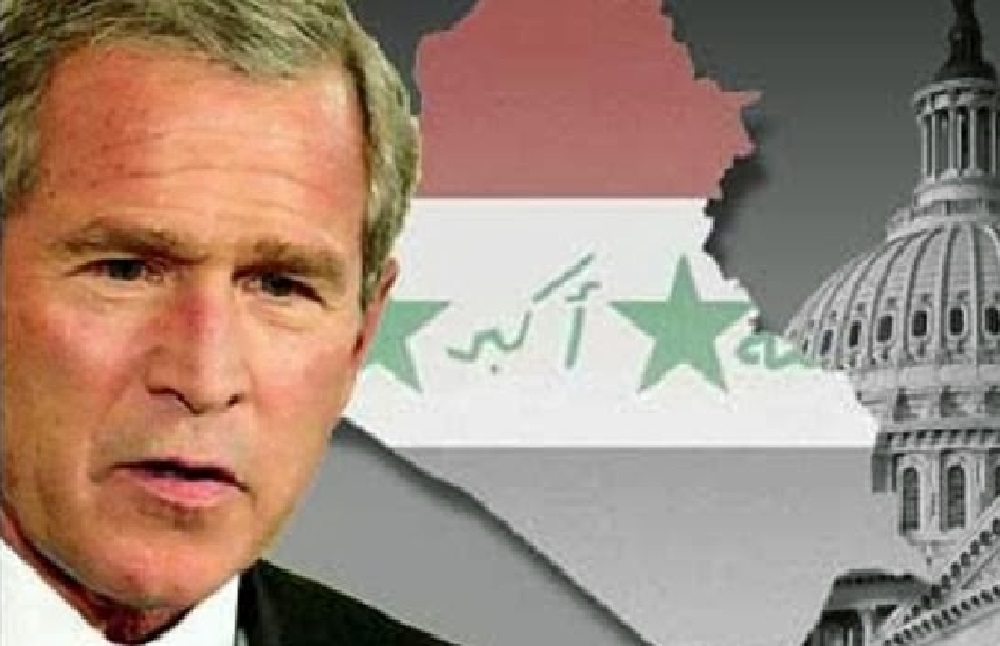Russia: The New Order Cometh
If there is any lesson to be learned from the recent Russian-Georgian war, it is that Western security commitments should not to be made unless and until they can be enforced. The war was the by-product of a mismanaged American foreign policy in the region because it attempted to gain American influence against Russia without providing sufficient American power to sustain that policy when challenged by Russia. This does not excuse the brutal application of Russian power against a neighboring state, but it goes a long way in explaining why America responded as it did.
During the war, President Bush proclaimed America’s “unwavering support” for the former Soviet republic of Georgia. For the U.S. however, it was just another hollow gesture that reinforced an unfortunate pattern of American hubris. Bush lauded the Rose Revolution that swept Mikheil Saakashvili to power, backed Georgia’s bid to enter NATO, and traveled to Tbilisi in 2005 to give his “pledge to the Georgian people that you’ve got a solid friend in America”. In response, the Georgians aligned themselves with the U.S., sent 2,000 troops to fight in Iraq and Afghanistan beside American forces, and even named a main road in Tbilisi after Bush. At the White House last March, Saakashvili expressed his gratitude to the president for having “really put Georgia firmly on the world’s freedom map.” Nevertheless, when push came to shove, the American response to the Russian invasion of South Ossetia was all rhetoric in large measure because the U.S. was already over-extended in Iraq and Afghanistan and had neither the desire, the power, the strategic necessity nor the political capital to take on the Russians over Georgia – and the Russians knew it. The Pentagon even went so far as to deny Georgian claims that the U.S. would defend Georgian airports and seaports from Russian aggression.
In many ways, the Russian-Georgian War was inevitable. The Russians saw American overtures to its former Soviet republics as an existential threat. George Friedman writing in Stratfor suggests that America overplayed its hand by actively courting former Soviet republics thereby convincing the Russians that their interests and national security were being threatened: “As Russia regained its balance from the chaos of the 1990s, it began to see the American and European presence in a less benign light. It was not clear to the Russians that the United States was trying to stabilize the region. Rather, it appeared to the Russians that the United States was trying to take advantage of Russian weakness to impose a new politico-military reality in which Russia was to be surrounded with nations controlled by the United States and its military system, NATO. In spite of the promise made by Bill Clinton that NATO would not expand into the former Soviet Union, the three Baltic states were admitted. The promise was not addressed. NATO was expanded because it could and Russia could do nothing about it… From the Russian point of view, the strategic break point was Ukraine. When the Orange Revolution came to Ukraine, the American and European impression was that this was a spontaneous democratic rising. The Russian perception was that it was a well-financed CIA operation to foment an anti-Russian and pro-American uprising in Ukraine. When the United States quickly began discussing the inclusion of Ukraine in NATO, the Russians came to the conclusion that the United States intended to surround and crush the Russian Federation. In their view, if NATO expanded into Ukraine, the Western military alliance would place Russia in a strategically untenable position. Russia would be indefensible. The American response was that it had no intention of threatening Russia. The Russians (retorted): Then why are you trying to take control of Ukraine? What other purpose would you have? The United States dismissed these Russian concerns as absurd. The Russians, not regarding them as absurd at all, began (their) planning (based) on the assumption of a hostile United States.”
Georgia presented Russia with the perfect opportunity to re-assert its political influence. Control of Georgia would give Putin control of the transit route between the Caspian Sea and the Black Sea, which is to say the Mediterranean. When the 58th Russian Army of the North Caucasus Military District rolled into South Ossetia and Abkhazia and effectively annexed 18% of Georgia, Russia saw it as “payback” for years of geo-political irrelevance, for its loss of global influence and empire, and as a response to Western condemnations of Russian transgressions at home and abroad. The invasion restored a sense of Russian pride and power although it was cloaked as a sort of humanitarian intervention on behalf of the beleaguered Ossetians.
In fact, Putin had already decided to make an example of Georgia which had been a constant irritant to Russia over Chechnya and was perceived as an American lackey on its border and a barrier to Russian interests in the Caucasus. In Georgia, Russia loudly declared that it will no longer capitulate to the West. The war has now placed Georgia firmly within Russia’s sphere of influence and there is little that the U.S. can do to alter the facts on the ground. And for good reason. As Ralph Peters wrote in the New York Post: “The essential point here is that Russia has a strategic vision, while the West does not. Putin acts, we react. Russia plans, we improvise. Our behavior is both ineffective and woefully inefficient.”
While the U.S. entanglements in Iraq and Afghanistan have hindered U.S. power in the Caucasus, the Kremlin’s military success in Chechnya combined with soaring oil prices have provided Russia with a tremendous economic and political advantage. With a GDP of $1.2 trillion and money from oil and gas revenues pouring into its treasury, the Russian military is now prepared to flex its muscle by punishing the Georgians for attacking separatist South Ossetia, for seeking membership in NATO, and for forgetting in whose “backyard” Georgia sits.
Putin may not intend to restore the Soviet Union to its former grandeur through occupation (which would be much too costly and exceptionally difficult), but he certainly intends to re-establish Russia’s sphere of influence in the former Soviet republics to counteract what he sees as deliberate American provocations in Russia’s “neighborhood”. The Georgian invasion was meant to serve as a warning to Poland and the Czech Republic who are toying with the idea of deploying U.S. missile defense systems on their territories. The weak U.S. response to the Russian invasion has not only diminished U.S. standing in the region, but arguably as a world power as well. As a friend and ally, Georgia was abandoned to the mercies of the Russian war machine and the other former Soviet republics of Ukraine, Estonia, Latvia, Lithuania, and Poland doubtlessly have taken note of this.
By humiliating Georgian President Saakashvili and forcing him to accept ceasefire terms that leave open the possibility of Russian control over portions of his country, Russia has sent a message that it will no longer tolerate hostile regimes in bordering states nor permit its economic or military hegemony in the region to be challenged. It has also demonstrated its indifference to Western opinion by showing its willingness to use force to prevent any more former Soviet republics from joining NATO. Putin realizes that Russia’s influence over Tehran, its veto in the U.N. Security Council, its nuclear weapons, the U.S. need for Russian assistance in Afghanistan, Russian control over vast oil and natural gas reserves and its willingness to use its military power in support of its strategic objectives, have given it enormous power and influence not experienced since the days of the Soviet Union. Besides, Western European states that have enjoyed the richest, longest stretch of peace in their history don’t want the good times to end and so can be expected to make excuses for Russia on just about anything.
Nor will the aftershocks be limited to Eastern Europe. They will reverberate throughout the Middle East as Russia will now seek to undermine American interests in that region by arming Syria and Iran just as America is seeking to promote its own strategic interests in Russia’s sphere of influence. While the West may move to dissolve the G-8, block Russian entry to the World Trade Organization, suspend its participation in the 2014 Sochi Winter Olympics and issue statements of support for the Saakashvili government, it cannot change the new reality.
As if Western pre-occupation with the threat of non-state Islamic extremism was not enough, the Russian-Georgian war has demonstrated that the old days of detente* have returned. The current effort for a U.S.-Russian summit to discuss future relations between the two powers will no doubt re-establish the “understanding” of mutual spheres of influence if only to keep Russia out of the Middle East.
The West has proven that it has neither the ability nor the willingness to use force to defend these new democracies. For the former Russian republics, it means that their independence will now be over-shadowed by Russian overseers and they had best recognize the new reality and adjust their foreign policies accordingly or suffer the consequences. During the Cold War, the West was unwilling to defend Finland, so Finland had to make its foreign policy subservient to Soviet interests. Georgia and the other former Soviet republics now find themselves facing their past. The balance of power in the Caucasus has changed and the U.S. must now re-evaluate its options. Like it or not, the era of moral ambiguity has returned.
*The strategy of detente that was executed successfully in the 1970s was based on not recognizing the legitimacy of Russian actions yet not pushing so hard as to endanger needed Russian cooperation on other issues of immediate concern to the U.S.



